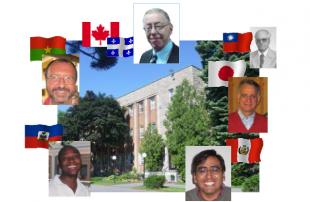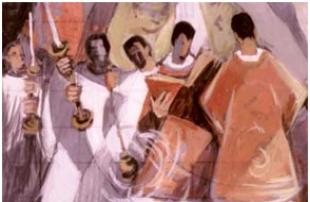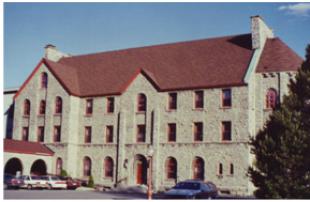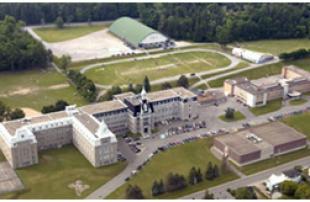Provinces




Its members
The Province of Canada includes Canada with its 148 Religious Viators and 60 Associate Viators, but also Burkina Faso with its 15 Religious Viators, Haiti with its 36 Religious Viators and 11 Associate Viators, Japan with its 6 Religious Viators and 28 Associate Viators, Peru with its 7 Religious Viators and Taiwan with its 2 Religious Viators. There are 322 Religious Viators and Associate Viators in mission in six different countries.
Its beginnings – its expansion
Founded on December 27, 1994 following the restructuring of the provinces of Abitibi, Joliette, Montreal and the Lower St. Lawrence, the Province of Canada, already present in Japan since 1948, then in Taiwan in 1953, in Peru in 1959 and in Haiti in 1965, continued to expand, this time on African soil, by founding in Burkina Faso in 1999.
The Viators are grouped in local communities, 19 in Canada, 2 in Burkina, 6 in Haiti, 2 in Japan, 4 in Peru and 1 in Taiwan, “to live the Viatorian project and to be a sign and witness of evangelical fraternity and union with Christ. ” .
Its functioning
The Province of Canada is directed and animated by a Provincial Council of five members who are in the third year of a four-year mandate: Father Claude Roy, Provincial Superior, Brother Benoît Tremblay, Assistant Provincial, Brother Yvon Rolland, Father Robert Jean and, most recently, Father Lindbergh Mondésir, all of whom are advisors. Twenty-five members, including the Provincial Council, representing all the religious of the Province, form the Provincial Chapter.
The Province has recently created a Council of the Viatorian Community in Canada, an organization that complements the Assembly of the Viatorian Community, notably by serving as an interlocutor with the various Viatorian authorities, between the sessions of the Assembly of the Viatorian Community in Canada.
The mission is deployed in different ways…
The Viators of the province have a presence in the world of education:
In Canada: Bourget College in Rigaud and Champagneur College in Rawdon.
In Burkina Faso: the Groupe scolaire Saint-Viateur (GSSV) in Ouagadougou and the Établissement Louis-Querbes (ÉLOQ) in Banfora.
In Haiti: the Institution mixte Saint-Viateur and the Kindergarten in Gonaïves. We are also responsible for the direction of the Collège Immaculée-Conception and the École Cyr-Guillo in Gonaïves; the Collège James M. Stine in Saint-Marc and the Institution scolaire Saint-François d’Assise in Grand-Goâve.
In Japan: Rakusei School.
In Peru: we are present in four schools: Fe y Alegria N°69 in Cutervo, Fe y Alegria N°11 in Collique, San Pie X in Huancayo and San Viator in Yungay.
Everywhere, the Viators incarnate the values and spirituality of our own charism with zeal and fervor, always concerned with helping the most needy.
The Viatorian Catechetical Service, established in 2000, provides accompaniment and assistance in the formation of catechists. Its website is dedicated to Christian initiation and the deepening of the faith. It offers practical tools and articles for reflection.
The Maison de la Foi, founded in 1988, has the mission of helping people affected by deafness, especially children, adolescents and young adults, to progress humanly and spiritually.
Parish ministry
In Canada, 20 religious Viators and many associate Viators are involved in parish ministry. They serve some 22 parishes, some of which are grouped into parish units in 6 dioceses, from Abitibi to Gaspésie. And that’s not counting the 5 other parishes of our foundations: Saint-Viateur in Banfora, Burkina; Saint-François de Grand-Goâve and Christ-Roi le Meilleur in Haiti; Saint-Viateur in Kitashirakawa, Japan; and Cristo hijo de Dios in Collique, Peru.
The Shrine of Our Lady of Lourdes in Rigaud. A work of popular faith education.
For more than 135 years, people have come from all over Canada and even from Europe to pay homage to Mary, the Mother of God, in the heart of a “magnificent cathedral of greenery” in Rigaud.
Youth movements:
The PCV, Service of Preparation for Life, is a community of Christian life where young people live in their environment following the example of the first Christian community (Acts 2, 42-47).
The PCV was born on January 19, 1964.
The young people, who commit themselves to it, live the apprenticeship of team life with all that it implies, i.e. the discovery of oneself and of others, listening, respect of the other and of his ideas. With the adult in charge, they prepare and carry out different projects of commitment. As a team, they learn to develop their personality while getting involved in their environment and discovering the presence of God in their personal lives.
In 2013, the PCV is present in the province of Quebec, in Haiti, in Africa (Burkina Faso, Ivory Coast, Democratic Republic of Congo) and in Madagascar.
Camp de l’Avenir, in Canada
Every summer, camps are organized at the Domaine du Lac Ouimet, in the Laurentians, to reach many young people from Quebec and French-speaking Canada. These happy life stays allow the learning of evangelical values such as truth, justice, service, commitment, solidarity and communion.
The “Camps for the Future” is an initiative created in the wake of the Service de Préparation à la Vie (SPV). These camps are a response to the needs of young people from 10 to 16 years old who wish to live an experience of Christian faith.
Friendship Camp, in Burkina Faso, for interreligious and intercultural dialogue
“The Friendship Camps were initiated in order to bring a Viatorian response to the evangelical efforts that are taking place throughout the world in search of hope. It is an interreligious and intercultural meeting, in which young people from schools and students, Muslims, Catholic Christians, Protestants and those of traditional ancestral beliefs, between the ages of 12 and 25, participate. The Friendship Camps, which began in July 2005, provide a framework for the training and education of young people of faith. Its essential objective is the promotion of interreligious and intercultural dialogue for social peace. “
François Savadogo, c.s.v.
ALFAGO in Haiti (“Alfa” for literacy and “Go” for Gonaïves) was born at the end of a “panel” on education during the 30th anniversary of the Immaculate Conception College on December 8, 1996.
An ambitious but indispensable project: the holding of literacy sessions in the community by the students of the secondary schools of Gonaïves. The following summer, “Alfago 97” carried out a first experience in 10 centers in the city, allowing 260 people to experience the joy of learning to read and write. This humanitarian initiative took root.
Subsequently, Alfa 98, Alfa 99, Alfa 2000 and Alfa 2001 were held, annual sessions in which Viators are involved, supported by teams of young people and adults who are concerned with freeing the “illiterate” from their isolation.
NAC is a youth movement in Haiti founded by Viators in 1992. It proceeds through the animation of young people and their mobilization under the banner of Christ. Its motto: “Light-Strength, Strength-Light”, indicates the back and forth movement of Christian witness.
The NAC mission is the evangelization of the youth by the youth. Alternating with the times of exchange, the formula retains the cultural, artistic and sports activities. For 10 years, the movement has not stopped growing. It currently reaches and energizes thousands of young people in about thirty localities throughout Haiti.
GEMP: Group for Listening and Meditation of the Word of God in Burkina



